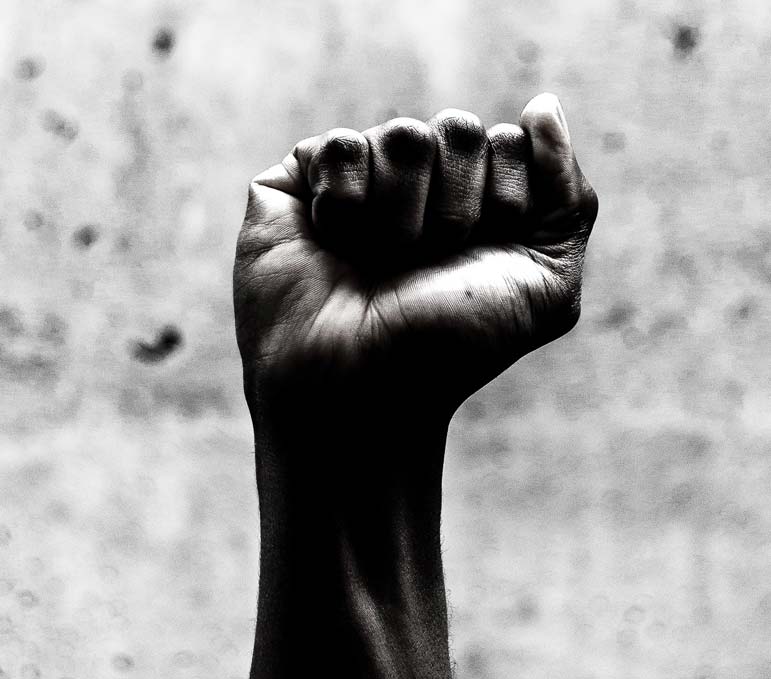
What we can say with some confidence is that we can't simply explain them as a function of unemployment and poverty.
Marxism as an ideology was crushed when the Berlin Wall fell in 1989, but as a method of analysis it still thrives. Modern thought has a tendency toward economic reductionism, viewing every historic problem as a mechanical working-out of underlying economic processes, and every solution in those terms.
After the 1960s riots, governments leaped in with public housing and economic redevelopment programs that did little to stem the decline of riot-haunted cities. After 9/11, we heard anguished discussions about poverty and economic stagnation in the Middle East. And when the United States elected Donald Trump president, reporters circled old factory towns like vultures, feasting on images of rusted-out manufacturing plants that could be fed to readers as the "reason" behind the political upheaval.
These things do matter. But in the words of sociologist Seymour Spilerman, who did some of the seminal research on the 1960s riots, they're "background conditions." The economic deprivation inflicted by America's racial caste system was real and abominable - and yet, says Spilerman, "in general, it's not economic conditions which are the immediate precipitants of riots."
While a general level of deprivation may make riots more likely (if for no other reason than because the poor have so little to lose), variations in economic deprivation don't. In the 1960s, blacks were economically oppressed everywhere, but there were still places where things were better or worse. So if economic conditions lead to riots, we'd have expected to see the most civil disorder in the places with the worst hardship. But that's not what the data show.
Nor did economic factors predict when riots broke out. After all, the 1960s were a period of unusually rapid economic progress for black Americans, thanks to anti-discrimination campaigns and the Civil Rights Act. If poverty and unemployment were driving rioters, the 1960s should have been one of the most racially peaceful decades in American history.
What did cause the riots, then? Well, rage and despair and a lot of hard- to-quantify socio-political factors. But taking them all in total, I'd sum them all up with one word: respect. Whatever our economic conditions, we also want - we need - to command a certain minimal amount of admiration from our fellow citizens.
The great victories of the civil rights movement changed many things. Schools were integrated; funding disparities eased. But that didn't obliterate the racism that still followed black people around stores, eyed them suspiciously on the street, dogged them in job interviews and caused the police to stop them for "walking while black."
In the late 1960s, as the legal barriers fell, the gulf between legal status and social reality may have chafed more than usual. This is a hard theory to prove, and it may not be the whole explanation. But it's probably more useful than yet another exegesis of the unemployment rate and housing conditions. After all, most people, for most of history, have lived in objectively wretched conditions without rioting.
If you are resisting the idea that respect might matter as much or more than unemployment or poverty, consider that in the United States, economic deprivation is itself a species of disrespect, breeding and magnifying the social variety. But pure social disrespect matters, too, a great deal. If we forget that, we will never resolve our problems - not the old ones and not our current differences, either.
There are vast differences, of course, between the race riots of the 1960s and the 2016 election. But when we explain these events, the tendency toward economic reductionism looks very similar, as does its implausibility.
Many places that voted for Trump never had many factories to lose to China or Mexico; many factory towns turned to Trump only after decades of decline. What most consistently motivates the Trump supporters I've met is not jobs or racism but anger at a culturally powerful elite that veers between ignoring them and disrespecting every facet of their lives.
We lean on economics because unlike "disaffection," it's relatively easy to quantify. And unlike "systemic racism" or "a rural/urban cultural divide," it feels like something that government policy can address. We are the proverbial drunks looking for our keys under the lamppost, instead of where we dropped them. And somehow, we are perpetually surprised that we never find what we're looking for.
Megan McArdle is a Washington Post columnist who writes on economics, business and public policy. She is the author of "The Up Side of Down." McArdle previously wrote for Newsweek-the Daily Beast, Bloomberg View,the Atlantic and the Economist.


 Contact The Editor
Contact The Editor
 Articles By This Author
Articles By This Author